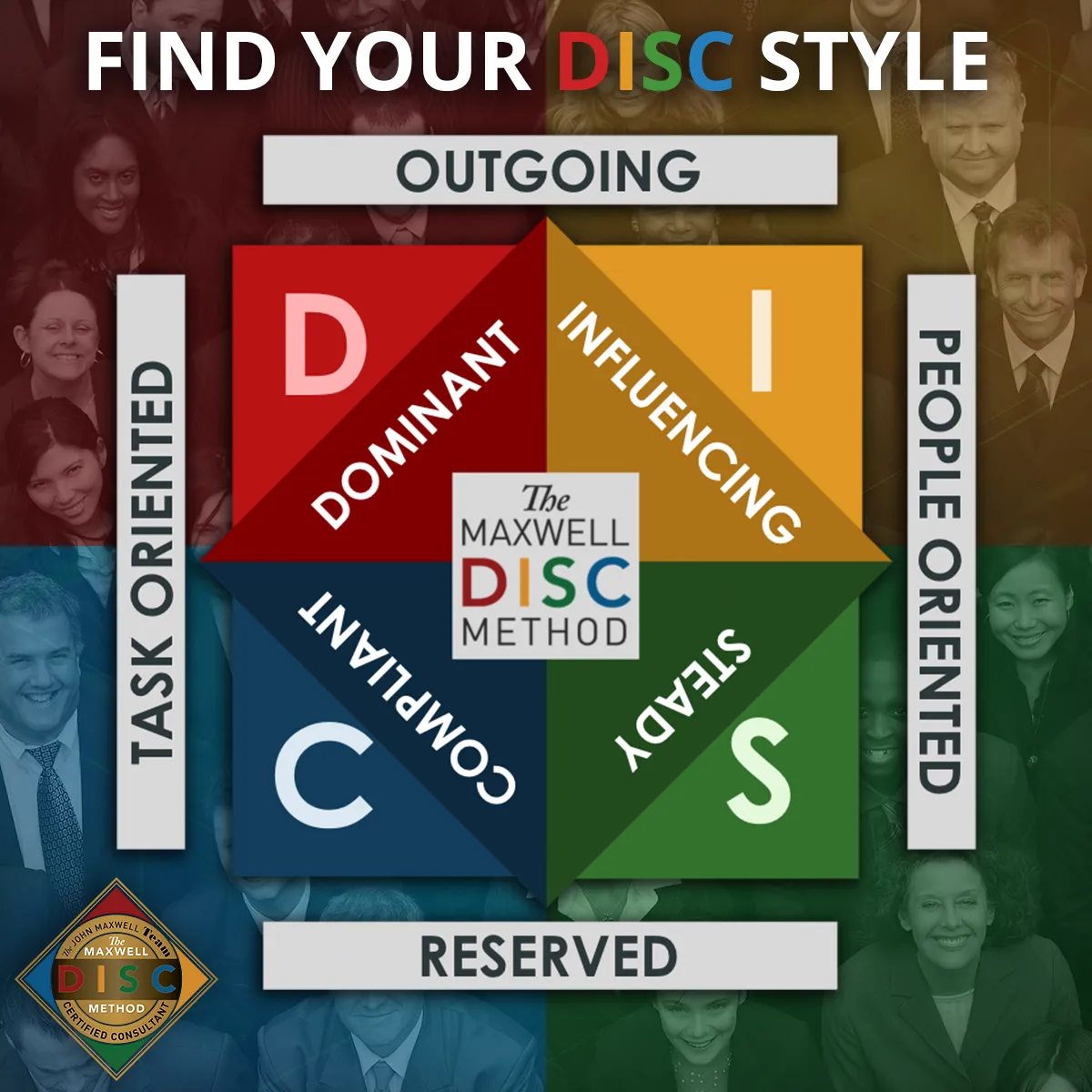Using DISC for Teamwork and Communication

This workshop will help participants learn how they relate to others by exploring motivational styles and conflict. The workshop centers on the Maxwell Method of DISC®️️️ Profile, a personal assessment tool used by more than one million people every year to help improve teamwork, communication, and productivity in the workplace.
The theory and background of the DISC Personality System, which has become known as “The International Language of Behavior,” exposes how people are motivated differently, how they communicate differently, how they view tasks and relationships differently, and how their individual personality affects every aspect of their life. The Maxwell Method of DISC Profile is the foundation for the Maxwell Method DISC Report and the suite of Maxwell Method Impact Reports, which have been used for over 30 years by counselors, business consultants, and corporations to understand, hire, and manage people.
How does the Maxwell Method of DISC work?
The Maxwell Method of DISC aims to help individuals identify their personal strengths and capitalize on their talents to make them more effective individuals. In identifying one’s own and others’ innate abilities, attributes, weaknesses and fears, the report helps people communicate better and work together more effectively.
The report is a result of a strategic alliance between The John Maxwell Team and the Institute of Motivational Living (IML), the publisher of the DISC Personality System. The Maxwell Method DISC Report uses components of the DISC Personality System and the DISC methodology.
The concept of the DISC is based on William Marston’s theories, which postulate that people basically possess one or more of four different personality styles:
Dominance – this describes someone who is direct, decisive, a problem-solver, a risk taker, and a self-starter
Influence – this describes someone who is enthusiastic, trusting, optimistic, persuasive, talkative, impulsive, and emotional
Steadiness – this describes someone who is a good listener, team player, possessive, steady, predictable, understanding, and friendly
Compliance – this describes someone who is accurate, analytical, conscientious, careful, precise, meticulous, and systematic.
Research has shown that behavioral characteristics can be grouped together in these four major divisions called personality styles. People with similar styles tend to exhibit behaviors in ways common to that style. Most individuals have a primary and secondary style but share these four styles in varying degrees of intensity.
Objectives:
Apply the DISC model to raise self-awareness including understanding how you respond to conflict, what motivates you or stresses you out, and how you solve problems.
Leverage the DISC model to improve teamwork through improved communication and understanding between team members.
Employ techniques to make conflict a positive, productive exercise that helps your organization move forward boldly.
Manage more effectively by understanding the dispositions and preferred working styles of your team members.
Identify areas for growth and strengthen leadership skills through self-assessment.
Stay Connected
Sign up for Kristan Getsy’s mailing list to stay connected often, but not “too often”.
Important links
meet with kristan
Copyright © 2025, Kristan Getsy. All Rights Reserved.
Important links
meet with kristan
Copyright © 2025, Kristan Getsy. All Rights Reserved.

